By Jenet Marlina | Dec 04, 2024 Updated 07:18 a.m. ET
Global investors have always valued South Korea below other markets for reasons ranging from tensions with the North to the tight structures of its conglomerates – politics this week gave them cause to deepen that discount.
Korean stocks fell and the won plunged to two-year lows on Tuesday after President Yoon Suk Yeol shocked the world by declaring martial law in the export powerhouse.
The impact was short-lived. Parliament overturned the ruling within hours and markets stabilized. Yet, for investors, it was a reminder of the reasons Korean stocks and the currency have underperformed global markets for months.
“In the longer term, the martial law episode would accentuate the ‘Korean Discount’, an elevated risk premium with trading Korea-related assets, equities, FX and bonds,” said Daniel Tan, a Singapore-based portfolio manager at Grasshopper Asset Management.
“Investors could require a bigger risk premium to invest in the won and Korean equities.”
Korea’s legendary “discount” refers to how cheaply stocks in the KOSPI 200 (KS200) index are priced relative to the assets companies hold, known as the price-to-book (P/B) ratio. A majority of companies listed on the KOSPI trade at a P/B below 1, way below peers. The MSCI world index trades at a ratio of 3.5.
The current political turmoil comes as Yoon and the opposition-controlled parliament clash over the budget and various scandals. By Wednesday morning, opposition lawmakers had vowed to impeach the president while the Chosun Ilbo newspaper reported the cabinet intended to resign en masse.
There are a few reasons for Korea’s perpetual discount.
One is the risk that comes from long-running tensions between North and South Korea.
Another is the nature of its businesses dominated by opaque family-run chaebols that seldom give out generous dividends.
The share price of biggest of them, chipmaker Samsung Electronics (005930.KS, SSNLF), is 9.2 times future earnings versus 18.5 for regional peer Taiwan Semiconductor Manufacturing Co. (TSMC) (TSM, 2330.TW)
The discount deepened this year as investors fretted over how exposed Korea is to China, whose anaemic economy now faces fresh U.S. trade tariffs. The won (KRW=X) is down 9% this year against the dollar, while the KOSPI has shed 7%, both lagging their emerging market peers.
“Despite the market being cheap and having underperformed —which is usually an enticing factor for investors — there’s not enough to see the won stabilise,” said Sat Duhra, portfolio manager for Asian dividend income at Janus Henderson.
“Investors have been wary of the so-called ‘Korea discount’, and this only reinforces the sentiment. I don’t plan to add to Korea in this uncertainty.”
Foreign money has been leaving Korea’s stock market since August, with outflows in four months topping $14 billion.
Money has gone into its high-yielding bonds. Yet investors could now turn cool on those bonds if the political mess morphs into a Yoon impeachment, snap elections or higher spending commitments by the country’s two main political parties.
While authorities scrambled to prop up the won and calm financial markets on Wednesday, investors are still anxious about what comes next for the currency.
“Near term, you’ve got to think that it’s going to be difficult for the won to do particularly well: Terrible structural backdrop, the domestic economy looks weak, you’ve got the central bank likely coming in and doing more (easing) than was previously expected, and on top of that, political malaise,” said Rob Carnell, ING’s regional head of research for Asia-Pacific.
“The fact that just generally the dollar looks stronger than everything else by default (makes it) almost a perfect storm.”

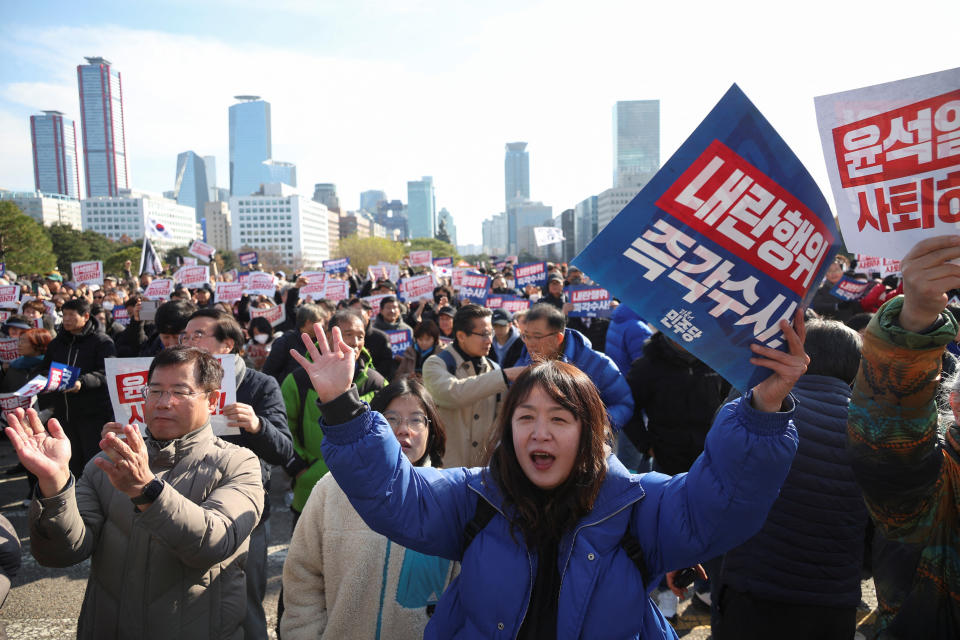
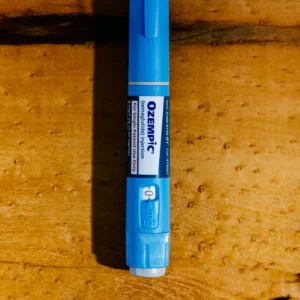
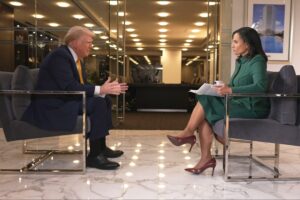

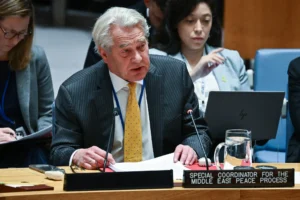

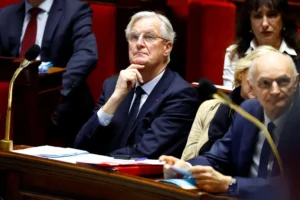
Be First to Comment